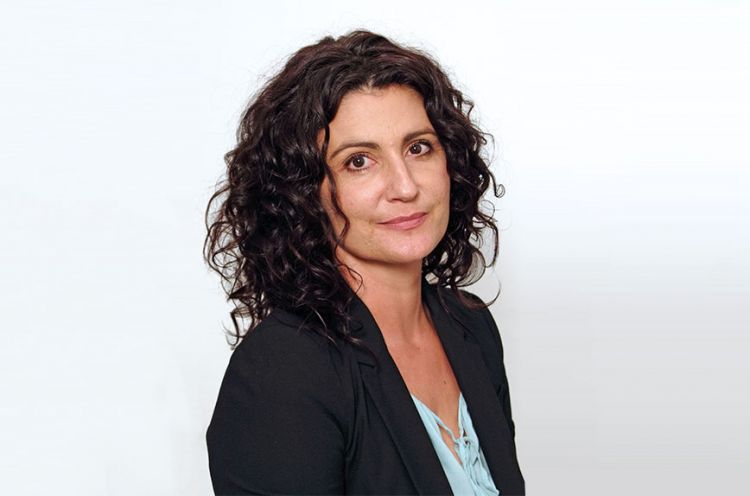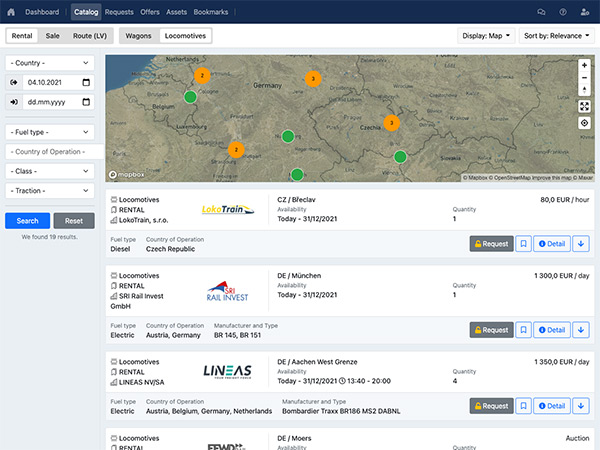RAILMARKET.com: You are a brand new company, what do you want to do to break into the Croatian market?
It is true that we are a new company in the Croatian market, however, experts and professionals working for our company have a proven track record in the Croatian railway sector. I have been working in the railway sector since 2003 and it is only now, working for Kombinirani prijevoz, that I have an opportunity to put into practice certain ideas, which I wasn’t able to do before. When it comes to a typical railway carrier, there is a lot of room for improvement and we have very clear vision of what kind of company we want to build. We are going to channel our efforts into digitalisation and modern technologies. The railway sector is slow to change and modernize and our goal is to build this company as a modern and technologically developed railway carrier.
RAILMARKET.com: Some of the few women in the European rail cargo industry are Sigrid Nikutta from DB Cargo or Elen Sime from LTG Cargo. Have they inspired you in any way, or do you not consider the issue of gender in this industry to be relevant?
The women you mentioned prove that a woman in this business can be as good as a man, or even better. Of course, regardless of your gender, it all comes down to hard work, knowledge, and commitment. However, to go back to your question of who inspires me. I would like to mention Melita Rozman – Dacar, Managing Director of SŽ - Tovorni promet, who is a legend in this business and the face of the company, successfully navigating various challenges for many years. She is a good role model and you can learn a lot from her.
RAILMARKET.com: How do you see the capacities in your country for moving more freight into the rail network? I am asking because, for example, in the Czech Republic we do not have sufficient capacity to be able to make such a transfer immediately.
Croatia is in a much better position than other developed countries in the EU. Our infrastructure has the capacity to double the cargo volume, however, most of our infrastructure is undergoing reconstruction works, which slows down the transport and imposes restrictions on our capacities. This is however a temporary obstacle and we believe that in a few years’ time when the scope of the reconstruction works decreases, the future volume of railway transport will exceed today’s volume, which surpasses 10%. This is what prompted us to establish a new company, Kombinirani prijevoz, and remain optimistic about its future prospects.
RAILMARKET.com: The advantage of Croatian logistics is its intermodality - you have access to the sea, and you can transport goods directly by trucks or trains. In recent years, Croatian cargo ports have undergone, or are still undergoing, a gradual reconstruction in the form of building new cargo terminals. Is Croatia managing to remain competitive with other major Mediterranean ports?
Intermodality is the cornerstone of present-day and future railway transport. The volume of containerized cargo is increasing not only in the EU but also in Croatia. Croatia is competitive in terms of its ports and railway, however, the biggest problem lies in the fact that we lack sufficient port capacities along the Mediterranean. Croatia is in a very good position in that respect and should seize this opportunity. The Adriatic Sea needs additional 2 million TEU per year in terms of port terminal capacity. This represents the current combined capacity of Italy, Slovenia, and Croatia. And this is where Croatia has the opportunity for growth. The construction of a new terminal in Rijeka is well underway and a bigger terminal is set to be built on the island of Krk, which shows Croatia’s desire to become a leading Mediterranean country for container shipments to central and south Europe. Construction of a new lowland railway from Rijeka to the border with Hungary would also help in that respect.
RAILMARKET.com: The first train of your new company recently ran in Croatia, how did it go?
Everything went smoothly. Our team is a well-oiled machine, with many years of experience and a proven track record in the railway sector. So it’s a pleasure working with them and building this company. Of course, we all celebrated when the first train arrived at its destination😊
RAILMARKET.com: What are your plans regarding the company’s development within the next 10 years?
It was our decision to develop our company by investing in digitalisation and state-of-the- art technology, and our plans go beyond national borders. We will cater to the wishes of our customers and develop our services accordingly. In any case, we will contribute to the development of the Croatian economy, create new jobs and increase the volume of cargo in transit through Croatia. Our goal is to be known for the quality of our service and not for the cheapest service on the market.

